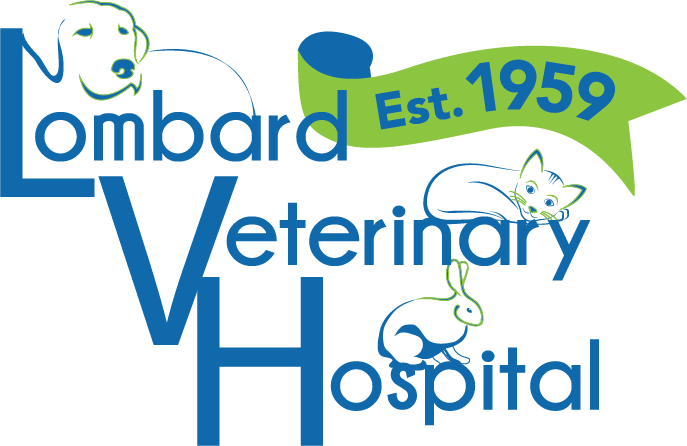Establishing an at home dental care routine is an important part of your dog’s overall health. You would never think to go days without brushing your own teeth, and it’s no different for your pets. Here at Lombard Veterinary Hospital we recommend brushing your dog’s teeth daily, but a great goal is at least three times a week.
One thing you will want to do first, is simply look at the color of your dog’s teeth. Ideally, they should be white. If you are seeing yellow, grey, or a greenish tinge to the teeth, it is most likely that there is tartar accumulating there. That is not something that you will be able to brush off, and they will need a professional dental cleaning. Also, the gum line should look nice and pink. If you see a red line at the gum line, that is gingivitis or inflammation of the gum tissue. What you’re doing by brushing on a regular basis, is preventing more tartar from forming, as well as keeping the gum-line happy.
Something you may want to do to just to get your dog used to toothbrushing, is simply play with their teeth a lot. Especially as a puppy, put your fingers in their mouth, touch their teeth, as well as their gums so that they get used to it. If you have an adult dog who has never brushed their teeth before, we recommend starting with lifting their lips and looking at the teeth. It is a good starting point to make sure they will tolerate you handling their mouth. From there, you can work your way up to touching the teeth, and even putting a bit of toothpaste on your finger wiping it on the tooth, and let them get used to the flavor.
It is important to remember that human toothpaste is not safe for pet use. We carry a line of toothpaste specially made for pets, including flavors such as poultry. What is great about this toothpaste is that it has an enzymatic action. Meaning, it will stick to the tooth and work on the plaque, even without a lot of physical brushing.
Once your dog is used to having their mouth handled, you can try using a toothbrush. We also carry a line of toothbrushes specially designed for pets. You only need to use a small amount of paste, and don’t worry about getting the brush wet before you begin.
You don’t want to be in there a long time, so we recommend brushing the most important areas first. (See video above for visual demonstration) Pulling back your dog’s lip, you will want to focus on the upper cheek area of the mouth, and work your way back to their canine tooth. Next, you can try to brush the front top teeth, or incisors. Some dogs enjoy chewing on the bristles a bit, and this helps to remove tartar as well. The bottom teeth are a challenging spot to reach. We recommend getting your dog used to the top teeth before attempting to brush the bottom.
We hope these tips will help make brushing your dog’s teeth an enjoyable experience for everyone. If you have any questions, feel free to contact us, here.

